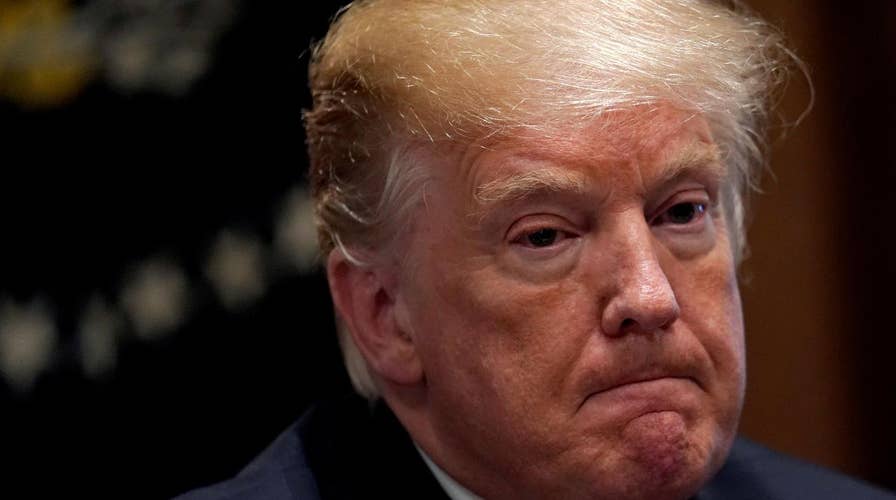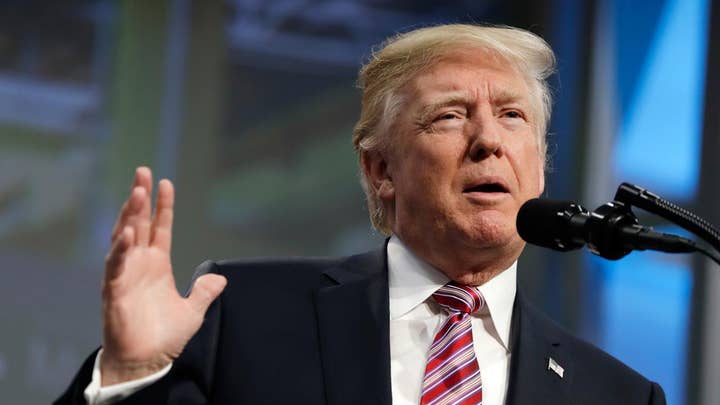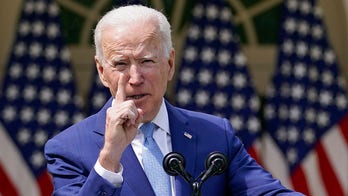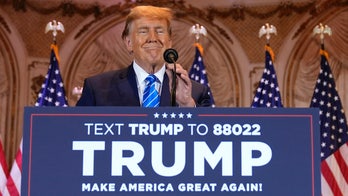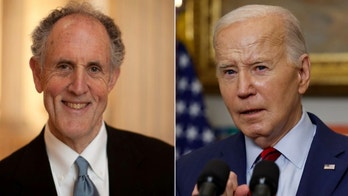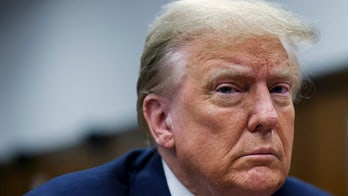President Trump to impose tariffs on steel, aluminum imports
Trump says the move designed to protect vital American industries, critics fear it will boomerang and possibly ignite a trade war; chief White House correspondent John Roberts reports.
President Trump announced Thursday he plans to institute tariffs on imports of steel and aluminum next week, arguing it will level the playing field for American companies and help them expand after plant closings in recent years.
The president said he decided on tariffs of 25 percent for steel and 10 percent for aluminum.
“So steel and aluminum will see a lot of good things happen,” Trump told reporters at the White House. “We're going to have new jobs popping up."
He made the dramatic announcement after participating in a listening session with 15 representatives from the steel and aluminum industry.
Meanwhile, stocks plunged as talk of steep tariffs on steel and aluminum spooked investors. The Dow Jones industrial average dropped as much as 500 points Thursday.
"You will have protection for the first time in a long while and you are going to regrow your industries," Trump told the executives. "That's all I'm asking. You have to regrow your industries."
Trump also said his decision to impose tarrifs is because "we need great steel makers, great aluminum makers for defense.”
Trump said he hoped it will lead to more “vibrant companies,” though told the executives “the rest is going to be up to management to make them truly great.”
“I remember when I was growing up, U.S. Steel -- that was the ultimate company,” Trump said. “And today you have so many closed plants.”
Increased foreign production, especially by China, has driven down prices and hurt American producers. The Commerce Department calls the situation a national security threat.
However, any action to impose tariffs is likely to escalate simmering tensions with China and other U.S. trading partners. Critics of such a move fear that other countries will retaliate or use national security as a pretext to impose trade penalties of their own. They also argue that sanctions on imports will drive up prices and hurt U.S. automakers and other companies that use steel or aluminum.
But Trump claims he's looking out for American jobs.
He said he's taking action because the North American Free Trade Agreement and the World Trade Organization has been “a disaster for this country.”
“It has been great for China and terrible for the United States,” he said.
Trump has been facing a pair of April deadlines to make a decision on the imports. Administration officials gave mixed signals earlier Thursday about what the president would decide.
Trump, though, gave a window into his thinking when he tweeted about the industries Thursday morning.
“Our Steel and Aluminum industries (and many others) have been decimated by decades of unfair trade and bad policy with countries from around the world. We must not let our country, companies and workers be taken advantage of any longer. We want free, fair and SMART TRADE!” he wrote.
Participants in Thursday’s closed-door meeting, arranged by Commerce Secretary Wilbur Ross, represented industry companies Arcelor Mittal, U.S. Steel Corporation, Nucor, Evraz, JW Aluminum, Century Aluminum, Chester Roush, Timken Steel, United Aluminum and AK Steel.
The Commerce Department has recommended tariffs on all steel and aluminum imports, higher tariffs on imports from specific countries or a quota on imports.
Ross last month offered the president three options:
--Tariffs of 24 percent on all steel and 7.7 percent on aluminum imports from all countries.
--Tariffs of 53 percent on steel imports from 12 countries, including Brazil, China and Russia, and tariffs of 23.6 percent on aluminum imports from China, Hong Kong, Russia, Venezuela and Vietnam. Under this option, the United States would also impose a quota limiting all other countries to the aluminum and steel they exported to the United States last year.
--A quota on steel and aluminum imports from everywhere, limiting each country to 63 percent of the steel and 86.7 percent of the aluminum they shipped to the U.S. last year.
Trump last year ordered an investigation into whether aluminum and steel imports posed a threat to national defense.
Fox Business’ Blake Burman and The Associated Press contributed to this report.
